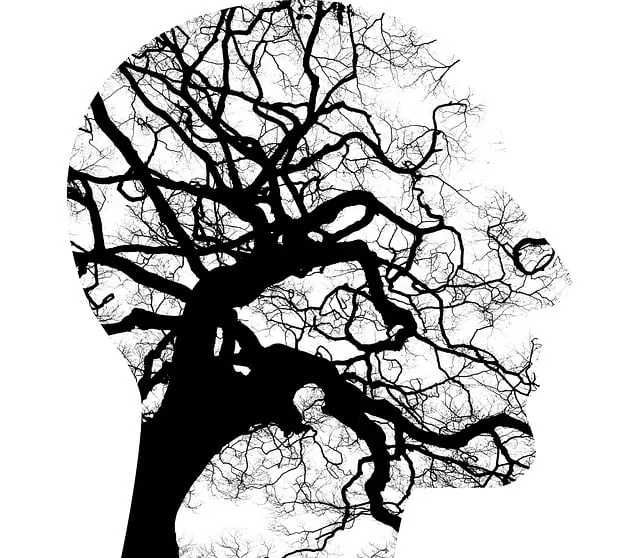The media significantly influences public perceptions of mental health, with accurate and empathetic portrayals reducing stigma and encouraging help-seeking behaviors, while stereotypes perpetuate misconceptions and marginalization. The Kaiser Permanente behavioral health center in Greenwood Village is leading efforts against negative mental illness stereotypes through initiatives like Stress Management Workshops and emotional regulation programs, promoting a more nuanced understanding. They advocate for diverse storytelling in media, featuring complex characters with unique mental health experiences, to foster empathy and reduce stigma. Collaboration between community members, behavioral health professionals, and media outlets is crucial for driving meaningful change and destigmatizing mental wellness conversations.
“The media’s portrayal of mental illness can significantly shape public understanding and attitudes towards mental health. This article explores the challenge of negative stereotypes and offers solutions for a more accurate and compassionate representation.
We delve into the impact of media on mental health perception, focusing on the efforts of Kaiser Permanente Behavioral Health Center in Greenwood Village, which has taken initiative to address this issue. Furthermore, we provide practical strategies for enhancing positive mental illness representation and highlight the importance of collaboration between community, professionals, and media outlets.”
- Understanding the Impact of Media Portrayal on Mental Health Perception
- The Current State: How Kaiser Permanente Greenwood Village Addresses the Issue
- Effective Strategies to Enhance Positive Mental Illness Representation in Media
- Collaborating for Change: Engaging Community, Professionals, and Media Outlets
Understanding the Impact of Media Portrayal on Mental Health Perception

The media plays a significant role in shaping public perceptions about mental health. Accurate and empathetic representation can reduce stigma, foster understanding, and encourage those struggling to seek help. However, stereotypical or inaccurate portrayals can perpetuate harmful misconceptions, leading to further marginalization of individuals with mental illnesses. Research by Kaiser Permanente behavioral health center Greenwood Village highlights the profound impact of media on how society views and treats mental wellness. Negative stereotypes often present mental illness as a character flaw or a personal weakness, deterring people from discussing their struggles openly.
In contrast, positive representations that showcase resilience, recovery, and diverse experiences can inspire hope and encourage individuals to take initiative for their mental wellness. This is where the development of Mental Wellness Coaching Programs and Stress Reduction Methods becomes crucial. By emphasizing these aspects, media can contribute to building resilience within communities, fostering an environment where people feel empowered to prioritize and maintain their mental health.
The Current State: How Kaiser Permanente Greenwood Village Addresses the Issue

Kaiser Permanente’s behavioral health center in Greenwood Village is at the forefront of challenging negative mental illness representations in media. They actively promote a more nuanced understanding by organizing Stress Management Workshops and initiatives that focus on emotional regulation. These efforts aim to educate the community about various stress reduction methods, shifting public perception from stigmatizing to supportive. Through these programs, Kaiser Permanente Greenwood Village fosters an environment where individuals can access resources without fear of judgment, ultimately contributing to a more informed and compassionate society. They believe in empowering folks through knowledge, ensuring everyone has the tools they need to manage their mental health effectively.
Effective Strategies to Enhance Positive Mental Illness Representation in Media

Media has a significant impact on shaping societal perceptions of mental illness. To challenge negative stereotypes and promote understanding, media outlets must adopt effective strategies for representing mental health conditions accurately and positively. One proven approach is to showcase individuals with mental illnesses as complex characters with unique stories, rather than defining them solely by their condition. This can be achieved through diverse storytelling, ensuring a range of experiences and identities are reflected.
In line with this, featuring characters who demonstrate emotional intelligence, engage in mindfulness meditation, and display inner strength development can contribute to a more nuanced portrayal. Organizations like the Kaiser Permanente behavioral health center in Greenwood Village advocate for such responsible media representation. By integrating these strategies, media creators can foster empathy, reduce stigma, and encourage viewers to seek support if needed.
Collaborating for Change: Engaging Community, Professionals, and Media Outlets

To drive meaningful change in mental illness representation, collaboration between various stakeholders is essential. Community members, behavioral health professionals like those at Kaiser Permanente behavioral health center Greenwood Village, and media outlets all play a crucial role. By engaging in open dialogues and sharing expertise, these groups can challenge stereotypes and promote accurate, compassionate portrayals of mental health issues.
Media outlets, for instance, can partner with community organizations and healthcare providers to produce authentic content, such as the Mental Wellness Podcast Series Production, which focuses on real-life experiences and stories. This approach not only enhances self-esteem improvement but also encourages depression prevention by destigmatizing conversations around mental wellness. Such collaborations ensure that media representation reflects diverse perspectives and contributes to a more informed and supportive societal narrative.
Media representation plays a pivotal role in shaping societal perceptions of mental illness. By implementing effective strategies and fostering collaboration, we can create a more inclusive and accurate narrative. The initiatives at the Kaiser Permanente behavioral health center in Greenwood Village serve as a model for positive change. Through engaging community stakeholders, professionals, and media outlets, it is possible to challenge stereotypes, promote understanding, and ultimately improve mental health support and acceptance. These collective efforts are crucial in ensuring that media portrayal empowers rather than hinders individuals facing mental health challenges.






